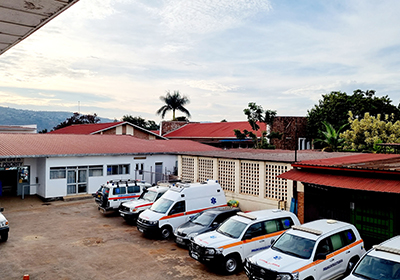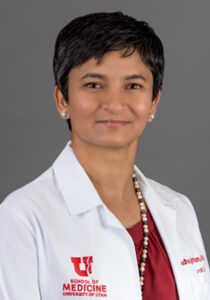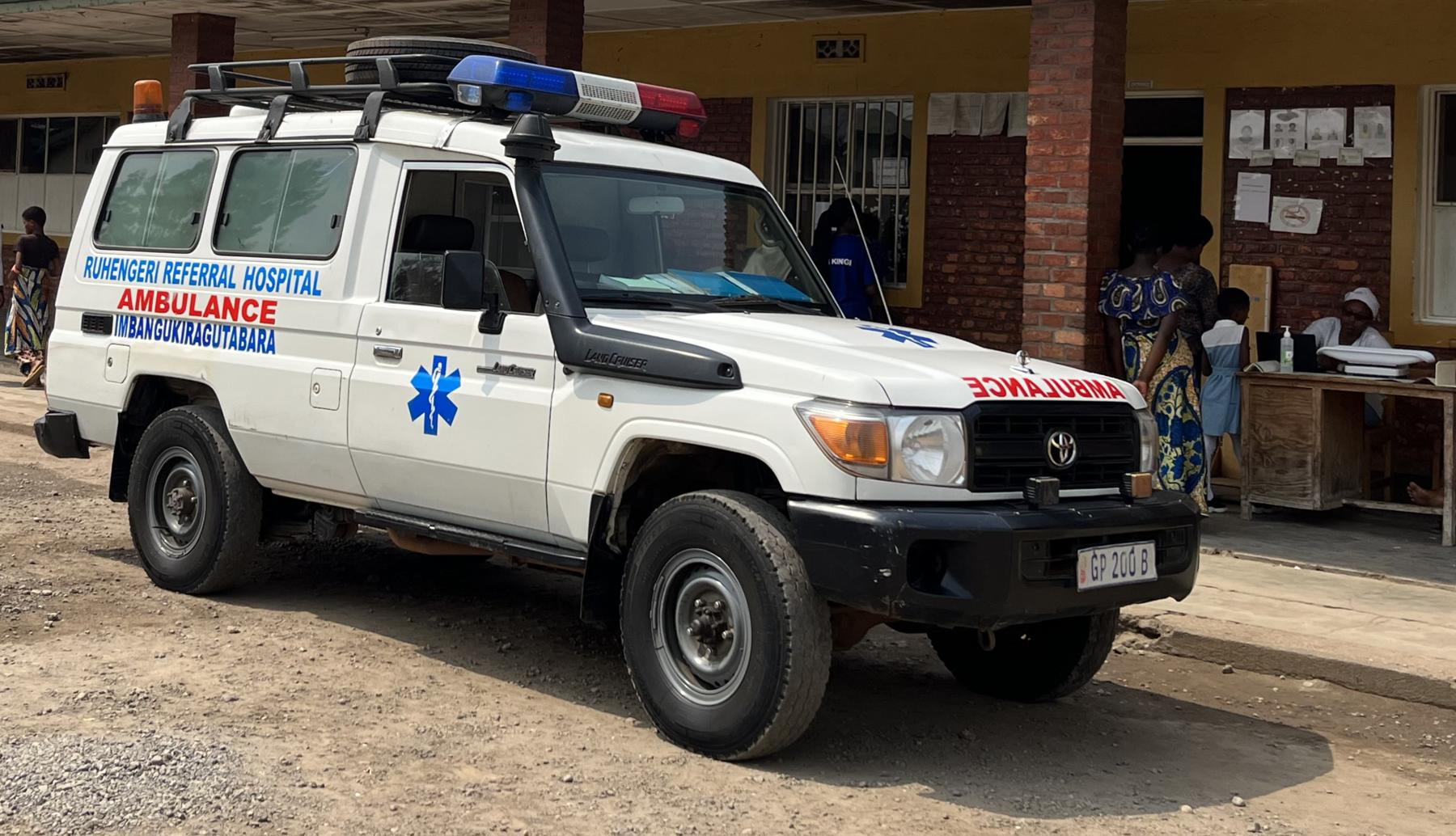Adapted from a press release from University of Birmingham by Sudha Jayaraman.
Ambulance crews in Rwanda’s capital city could save more lives with the launch of a unique electronic system that would potentially speed hospital transfers – reducing the likelihood of people dying unnecessarily from injuries caused by road traffic crashes, accidents, or violence, as well as other emergency conditions.
Every year in Rwanda, injury causes 9% of deaths, with 47% of these occurring before patients can reach the hospital. However, death and disability after injury can be substantially reduced if people reach healthcare facilities quickly. Like many low- or middle-income countries (LMIC), Rwanda experiences lengthy delays in getting patients to hospitals as all communications between patients, ambulances, and hospitals are done using multiple phone calls.

Led by University of Utah Health in partnership with the leadership of Emergency Medical Services at the Government of Rwanda and Rwanda Build Program, a local software development program, the 912Rwanda software has recently been rolled out in Kigali. This software has already been implemented in nearly 4,000 ambulance trips in the first phase of the project. The innovative system uses a single software platform to enable faster patient location, alerts to hospitals and coordination across ambulances, a national dispatch center, and receiving facilities.
Sudha Jayaraman, MD, MSc, principal investigator of the NIH-funded first phase of the project and Director of the Center for Global Surgery at University of Utah Health stated: “The 912Rwanda software and project has already had phenomenal success due to buy-in from the highest leaders in the government of Rwanda as they look to transform their country into a leading power in the region and envision this work being an important part of that future. We are privileged and excited to partner with the leadership of the Division of Emergency Medical Services, Dr. Nepo Sindikubwabo and Mrs. Jeanne d’Arc Nyinawankusi, as they create an international role model for such systems.”
Sindikubwabo agrees: “Our emergency medical service teams are happy to have helped design and implement the 912Rwanda software and look forward to the next steps of creating a coordinated system across all of our hospitals in Kigali city and expanding across to other parts of the country.”
Rob Rickard, director of the Rwanda Build Program, highlighted the project’s technical advancements, stating, “Our collaborative efforts are setting new benchmarks in the realm of healthcare technology; the success of this project comes from the strength of all the partners’ dedication and the support of the SAMU division within the Ministry of Health and Rwanda Biomedical Center.”

In many LMICs, high housing density and poorly mapped streets challenge ambulance crews to locate patients quickly. Added to this, where resources are low, ambulance staff often lack experience in recognizing patients’ medical needs, and facilities have varying supplies of staff or equipment. Meaning that, even when found, matching the patient to the facility that can treat their condition is difficult.
This challenge will be addressed in a second phase supported by more than £3 million in funding from the UK’s National Institute for Health and Care Research (NIHR) Research and Innovation for Global Health Transformation (RIGHT) program. Justine Davies, professor of global health research at the University of Birmingham, Jean Claude Byiringiro, MD, associate professor of surgery and former dean of the School of Medicine and Pharmacy at University of Rwanda, in collaboration with the established Utah team will lead the upcoming effort.
Later this year, this second phase will introduce an innovative Destination Decision Support Algorithm (DDSA) – an electronic decision support tool for ambulance staff to recognize the severity of patients and an algorithm to match their severity with the facility that has the appropriate staff and equipment available to treat them that day.
Davies, co-principal investigator of the NIHR-funded project commented: “Each one of these phases — finding the patient and then finding the right facility for that patient —is likely to dramatically reduce the time it takes for emergency patients to get to treatment at a hospital; in emergency care, minutes saved equals lives saved.
“The readiness of our program also comes at a time when politicians in Rwanda have recognized that the number of people dying after injuries is in excess of what it should be and that ambulance services need to be more efficient.”
Byiringiro said: “We believe that the program can make a significant impact in Rwanda, reducing the time it takes to get injured patients to the hospital. Importantly, the project could play a key role in developing similar solutions in countries facing the same sort of problems.”
Over the next several years, researchers from the Universities of Birmingham, Rwanda, and Utah will develop, deploy, and evaluate the 912Rwanda system in partnership with colleagues from the Universities of Global Health Equity, York, and Aberdeen as well as the government of Rwanda and the Rwanda Build Program.

